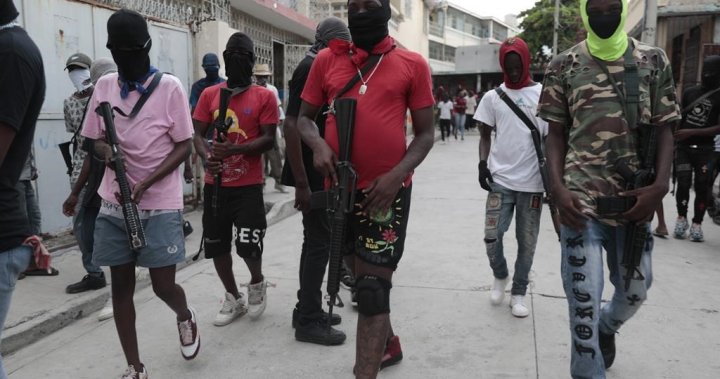The United Nations Security Council has made the decision to dispatch a multinational force to Haiti to confront the violent gangs that are wreaking havoc in the Caribbean nation. Kenya will take charge of this mission, which will operate in Haiti for a duration of one year. The resolution, approved by 13 council members, saw China and Russia abstain from voting.
Drafted by the United States and Ecuador, the resolution authorizes the mission, known as the Multinational Security Support, to employ all necessary measures, including the use of force if required. Jean Victor Geneus, Haiti’s Minister of Foreign Affairs, declared, “More than just a simple vote, this is in fact an expression of solidarity with a distressed population. It’s a glimmer of hope for the people who have endured suffering for an extended period.”
Haiti’s national police force has been grappling with restoring order to the nation in order to hold the promised elections. The deployment date has yet to be determined, but US Secretary of State Antony Blinken recently stated that a security mission could be sent to Haiti within “months.” Kenyan Foreign Affairs Minister Alfred Mutua stated last week that the force could be deployed in approximately two to three months, possibly in early January. Additionally, he mentioned that important officers are receiving French language instruction.
In August, UN Secretary-General Antonio Guterres informed the council that a robust use of force by a multinational police deployment and the utilization of military assets was necessary to restore law and order in Haiti and disarm the gangs. Earlier this year, Canada rejected appeals from Western allies to take the lead in such a mission, resulting in the UN seeking out other countries capable of doing so. Kenya offered 1,000 police officers in July, with the Bahamas committing 150 individuals and Jamaica and Antigua and Barbuda expressing their willingness to assist. Nonetheless, the exact size of the force remains unclear.
Last month, the Biden administration promised to contribute logistics and $100 million to support the Kenyan-led force. Canada has chosen to provide humanitarian aid and military resources to assist in training Haiti’s national police in combating the gangs, who have disrupted ports and brought the capital to a halt as civilians flee the escalating violence and abductions. According to recent UN statistics, from January 1 to August 15, over 2,400 people were reported killed, over 950 kidnapped, and another 902 injured in Haiti.
Prime Minister Justin Trudeau pledged an additional $80 million in humanitarian aid and security assistance for the overwhelmed Haitian police while at the United Nations last month. He emphasized the need for a solution to the crisis to come from within the country, stating, “The only lasting solutions will come through working with the Haitian people themselves, empowering the Haitian people themselves to direct and take responsibility for the future.”
In addition to this, the 15-member council has expanded the UN arms embargo to include all gangs. Previously, the embargo only targeted specific individuals. Haitian officials have claimed that the guns used by the gangs are primarily imported from the United States. Haitians harbor reservations about the presence of an armed UN force due to the fact that in 2010, UN peacekeepers contaminated a river with infected sewage, resulting in a cholera outbreak that claimed over 9,000 lives and affected around 800,000 individuals. The mission concluded in October 2017.
During the vote, Russia’s representative, Vassily Nebenzia, explained that he does not object to the resolution in principle, but considers sending an armed force to a country, even at its request, an extreme measure that must be thoroughly considered. Zhang Jun, China’s representative, expressed his hope that the countries leading the mission would engage in extensive consultations with Haitian officials regarding the deployment of the security force. He also stressed the importance of having a legitimate, effective, and accountable government in Haiti for any resolution to be effective. Additionally, he criticized the resolution for lacking a realistic timeline for the force’s deployment.
According to the resolution, a review of the mission will be conducted after nine months.
Note: HTML tags have been retained to maintain the integrity of the original content.
Denial of responsibility! Vigour Times is an automatic aggregator of Global media. In each content, the hyperlink to the primary source is specified. All trademarks belong to their rightful owners, and all materials to their authors. For any complaint, please reach us at – [email protected]. We will take necessary action within 24 hours.


